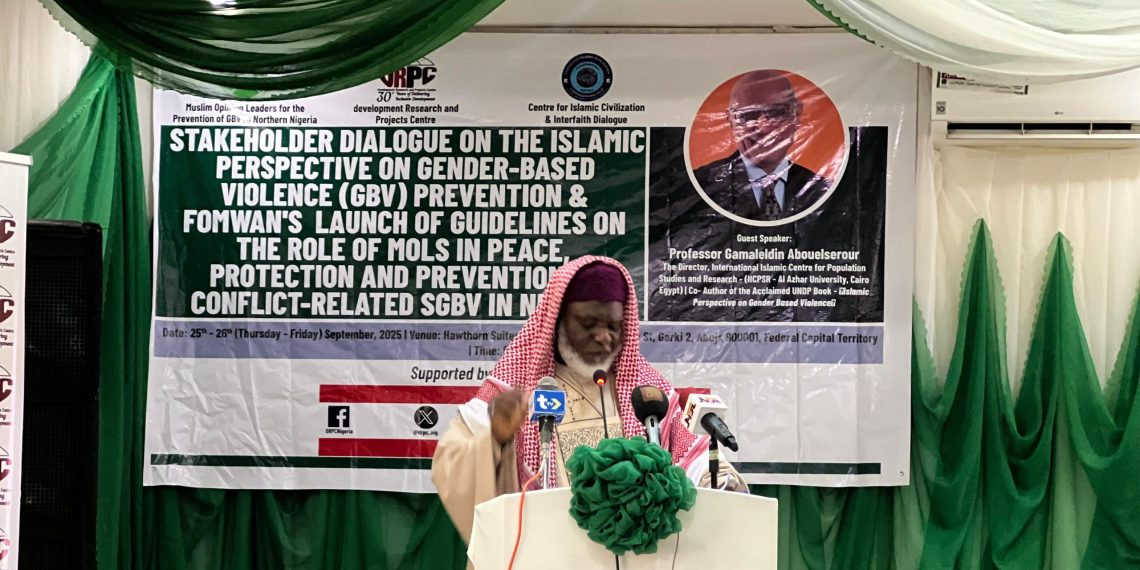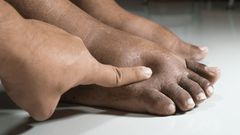A pivotal two-day Stakeholder Dialogue on the Islamic Perspective on Gender-Based Violence (GBV) prevention has commenced in Abuja, convened by the Development Research and Projects Centre (dRPC), alongside the Muslim Opinion Leaders for the Prevention of GBV in Northern Nigeria and the Centre for Islamic Civilisation and Interfaith Dialogue (CICID). This timely event brings together policymakers, religious scholars, traditional leaders, and activists to address the urgent issue of GBV within a religious and cultural context especially relevant to Northern Nigeria and the broader West African region.
The gathering features the launch of several major educational resources aimed at combatting GBV. These include the Abridged Version of the Al-Azhar Guide on the Islamic Perspective of GBV, a Hausa translation of the Islamic Guide on GBV tailored for Northern Nigerian communities, and specific guidelines for supporting survivors of conflict-related sexual and GBV from an Islamic perspective. In addition, the Federation of Muslim Women’s Association in Nigeria (FOMWAN) is unveiling new guidelines outlining the important role of Muslim Opinion Leaders in fostering peace, promoting protection, and preventing sexual and gender-based violence (SGBV) during periods of conflict in Nigeria.
Esteemed figures on the event’s agenda include Imaan Sulaiman-Ibrahim, Nigeria’s Minister of Women Affairs; Kano State’s Commissioner for Religious Affairs, Tijjani Auwal; Secretary to the Government of Kano State, Umar Ibrahim; and the Vice-Chancellor of Bayero University Kano, Haruna Musa. Professor Gamaleldin Aboulserour, an internationally recognized expert from Al-Azhar University and director at the International Islamic Centre for Population Studies and Research, is delivering the keynote address, focusing on the crucial role of religious leaders in GBV prevention, according to the dRPC’s official programme.
By 9:44 a.m., the event commenced with introductions from the Master of Ceremony, spotlighting the focus on Islamic perspectives on GBV and FOMWAN’s new guidelines. Organisers took a moment to recognize key partners like the dRPC, Muslim Opinion Leaders for the Prevention of GBV, and CICID. The opening prayers were led by Ahmad Yankuzo, Chief Imam of the Federal University of Technology, Minna, shortly followed by a collective recitation of Nigeria’s National Anthem—a reflection of national unity in tackling social challenges.
The morning’s session outlined a packed agenda, including a welcome by CICID, goodwill messages from dignitaries and sponsors—such as the Ford Foundation—a keynote presentation examining religious guidelines on GBV, the official launch of three new educational manuals, and a panel discussion encouraging frank experience-sharing.
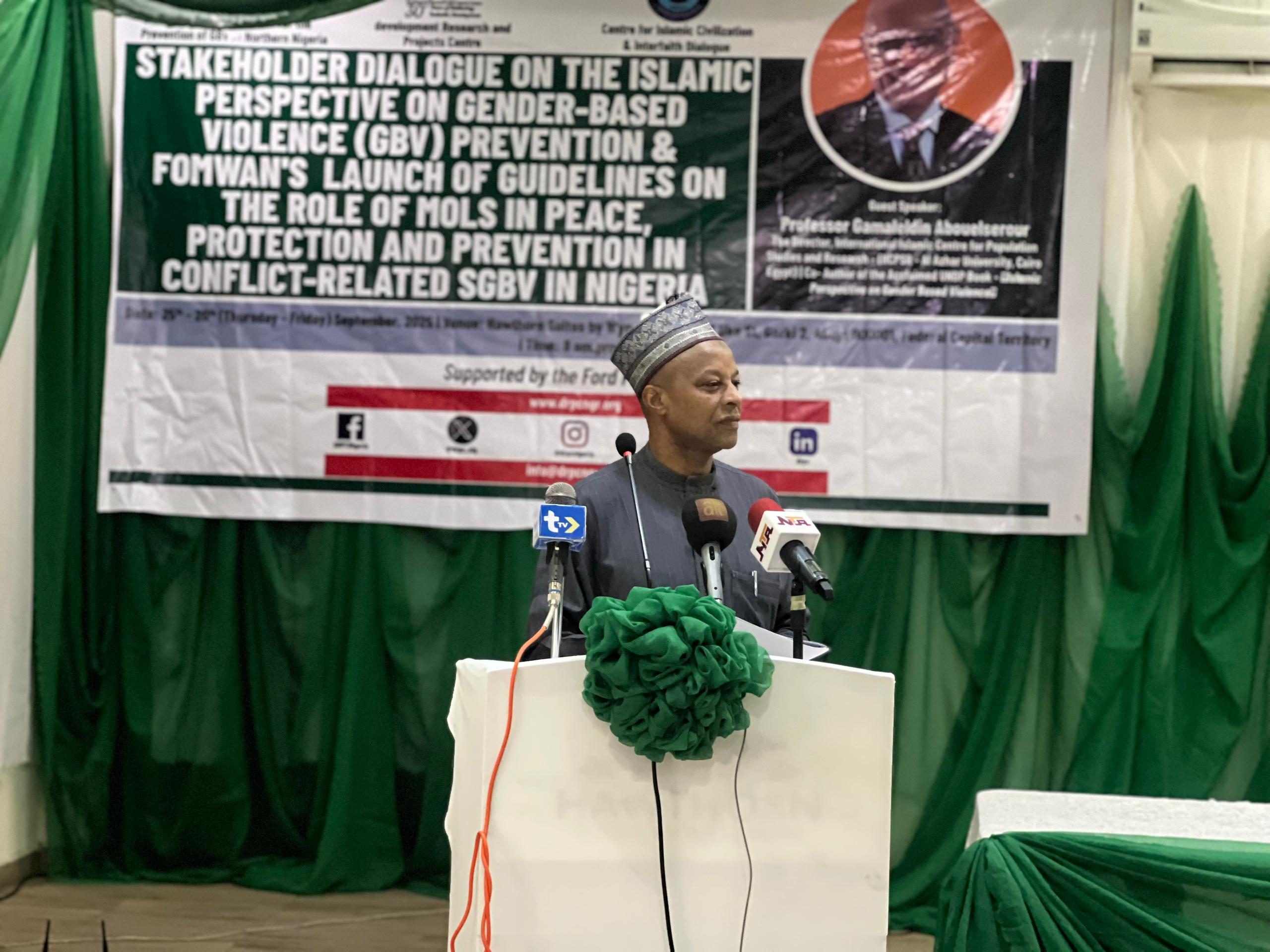
During his welcome speech at 10:07 a.m., Professor Sani Garko, a dRPC board member, reflected on the centre’s founding by Ahmadu Bello University academics at a time when NGOs had little presence in Northern Nigeria. He emphasized the organisation’s commitment to addressing regional challenges, naming GBV as a key area of concern. Professor Garko highlighted the influential role traditional and religious leaders play in shaping public attitudes toward GBV.
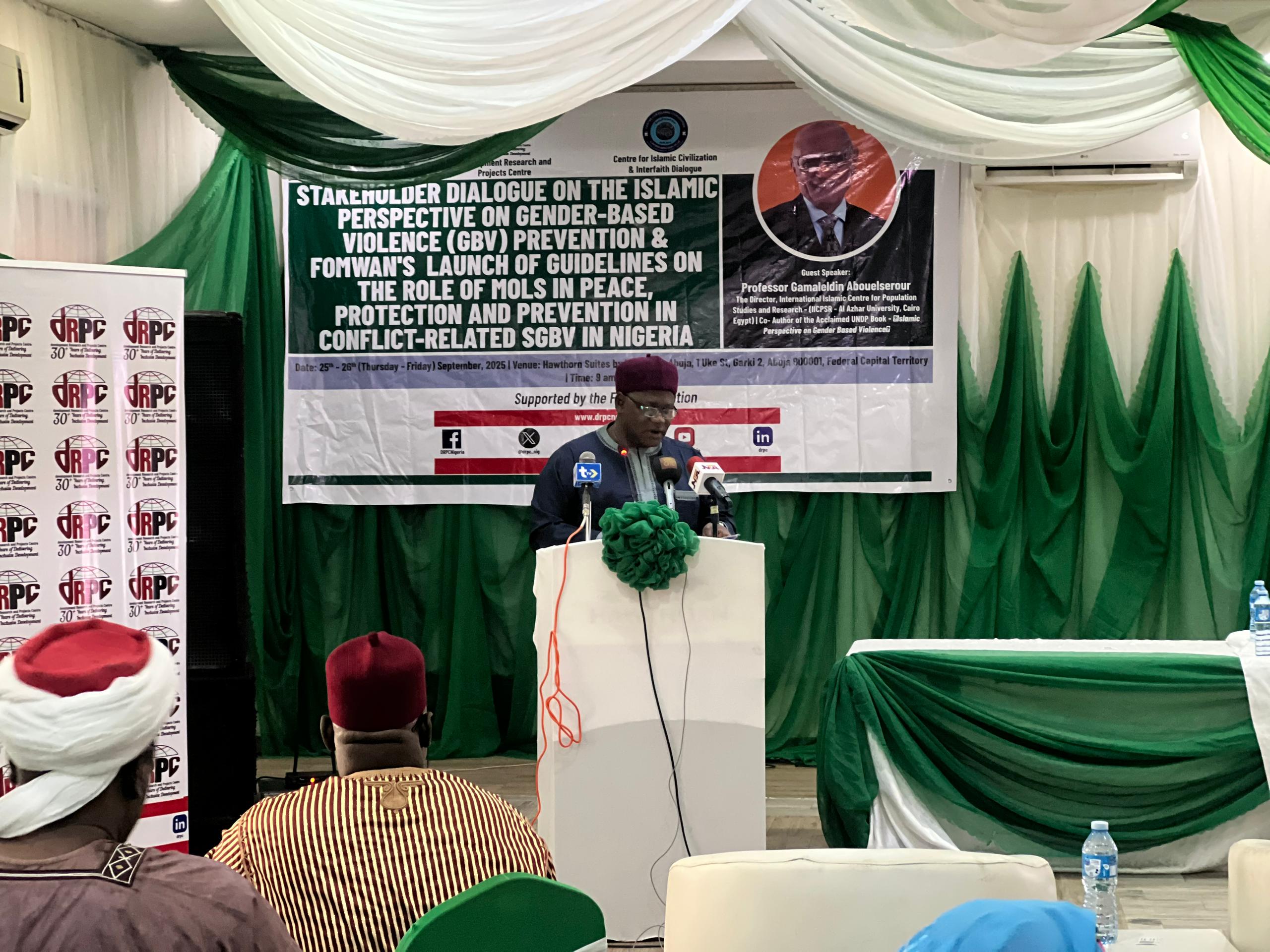
Following this, Taufiq Abubakar, Director of CICID at Bayero University Kano, called for more open conversations and sharing of experiences to inspire actionable change. He stressed that under Islamic law, all forms of harassment and mistreatment are strictly forbidden, arguing that Islam’s code for respectful treatment of women could be the cornerstone of a society free from GBV.
Oumar N’diaye, Programme Officer with the Ford Foundation, delivered a goodwill message urging attendees to take the insights from the dialogue back to their communities, amplifying the anti-GBV message where it is most needed. Recognising local partners’ efforts, he called for collective action in combating GBV.
Tijjani Auwal, Commissioner for Religious Affairs in Kano State, praised organisations like dRPC for reaching communities beyond the government’s direct influence, underlining the necessity of grassroots engagement.
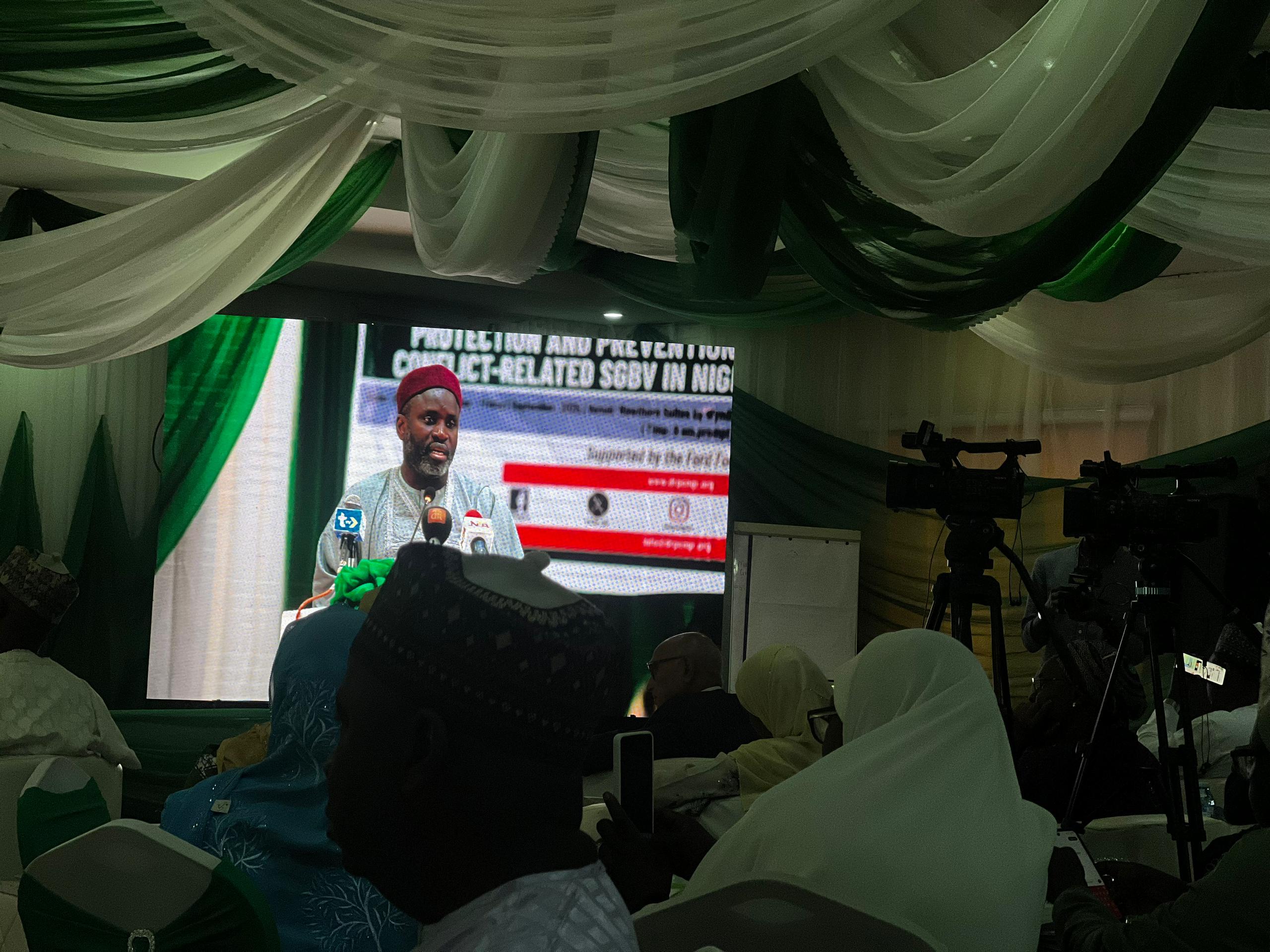
Umar Ibrahim, Secretary to the Government of Kano State, highlighted the partnership between dRPC-trained Muslim Opinion Leaders and state government efforts around women’s economic empowerment. He credited the collaboration and stakeholders’ dedication as essential factors in GBV prevention initiatives across Northern Nigeria.
Representing Bayero University Kano’s Vice-Chancellor, Professor Haruna Musa, Dr. Safiya Nuhu echoed the need for religious leaders to use their platforms to challenge harmful cultural practices that allow GBV to endure, despite Islamic teachings against it. He commended dRPC’s continued collaboration with Islamic scholars and emphasized the university’s involvement as a vital community service.
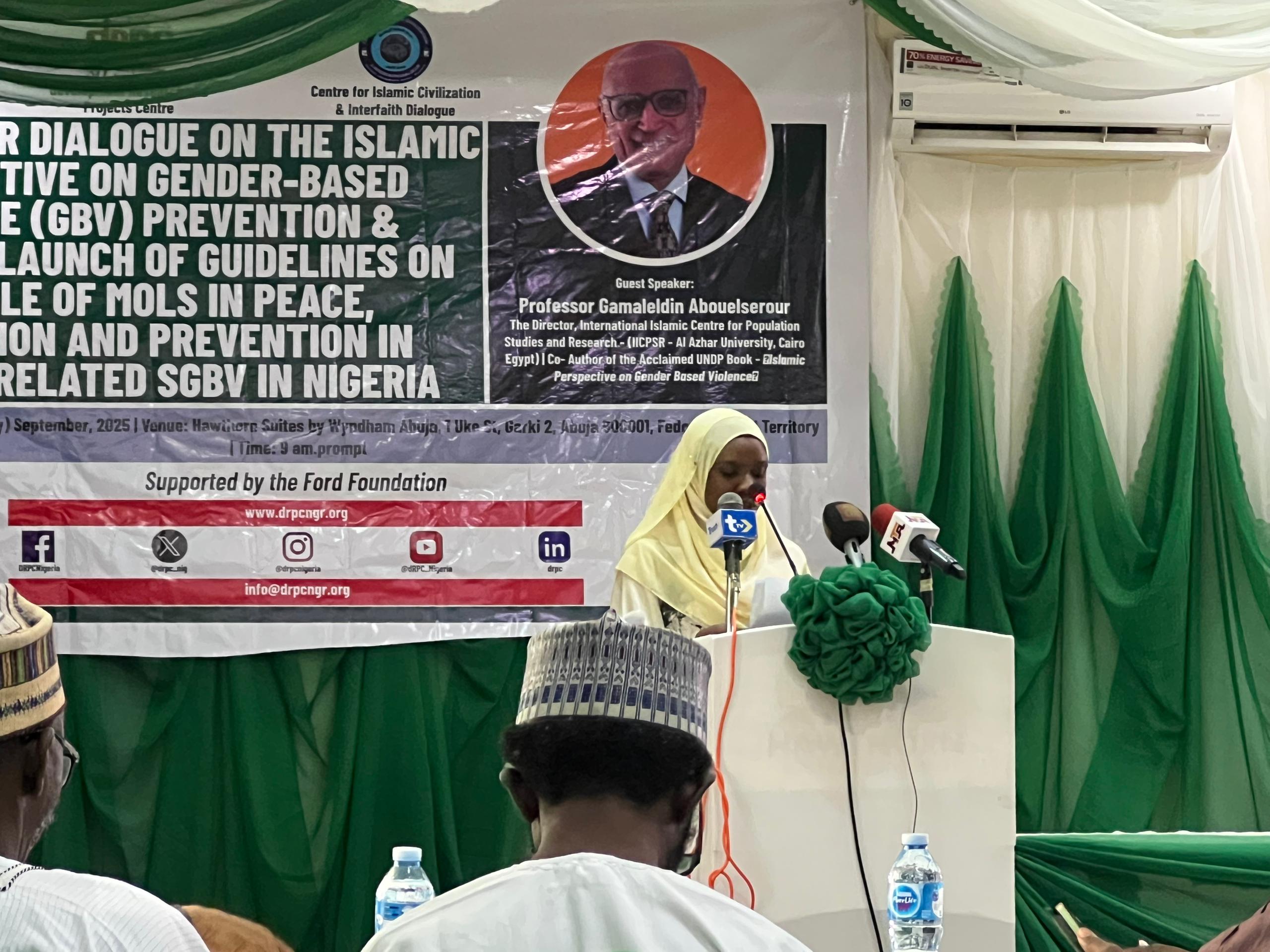
Professor Gamaleldin Aboulserour later addressed the gathering, illuminating the Islamic scriptural foundations forbidding violence and enjoining kindness. He asserted that, within Islam, the family is the first and most important protective environment.
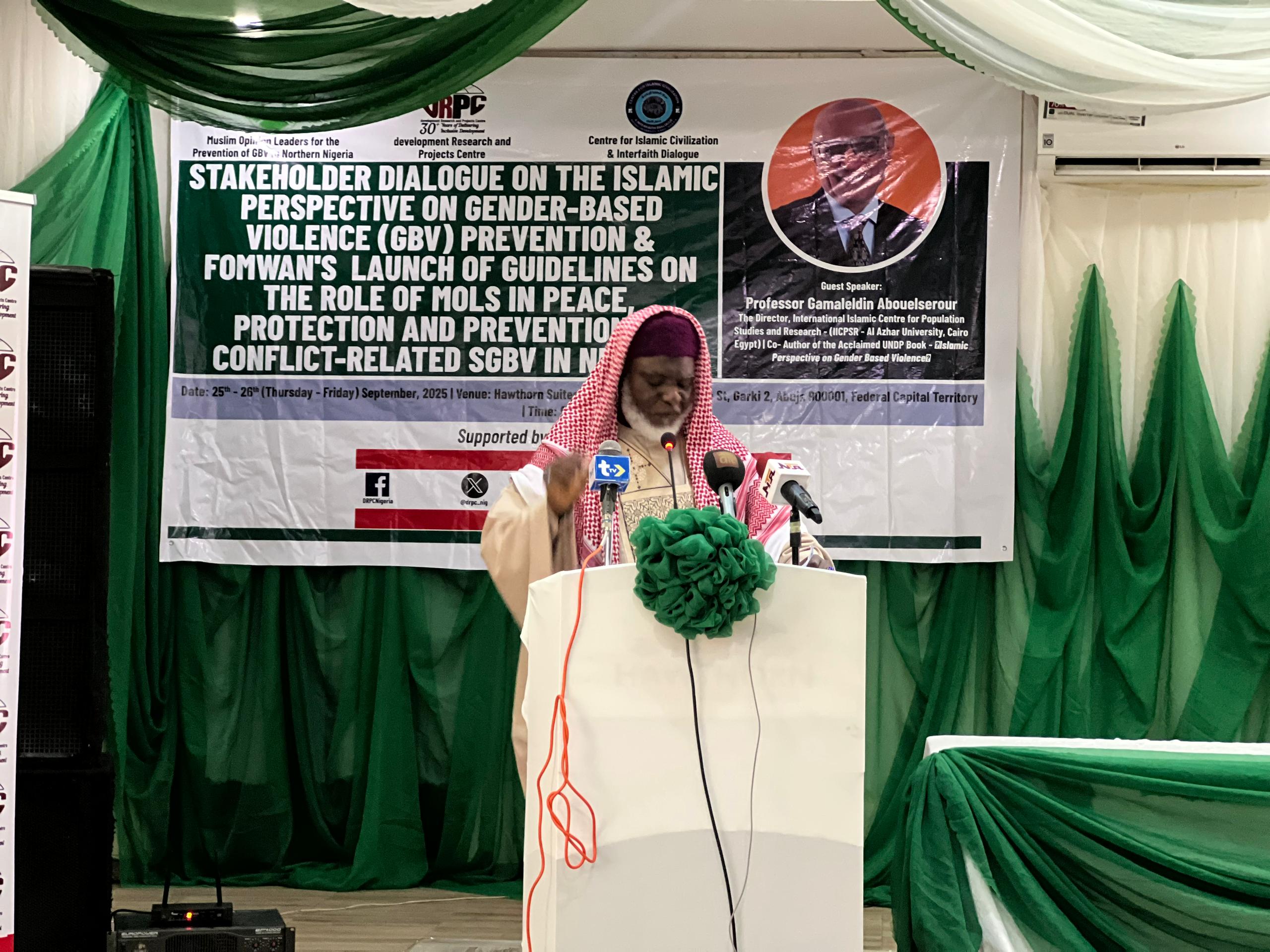
On behalf of Minister Imaan Sulaiman-Ibrahim—who was attending the United Nations General Assembly in New York—Aisha Gana officially declared the ceremony open, reaffirming the government’s commitment to advancing women’s rights and preventing GBV.
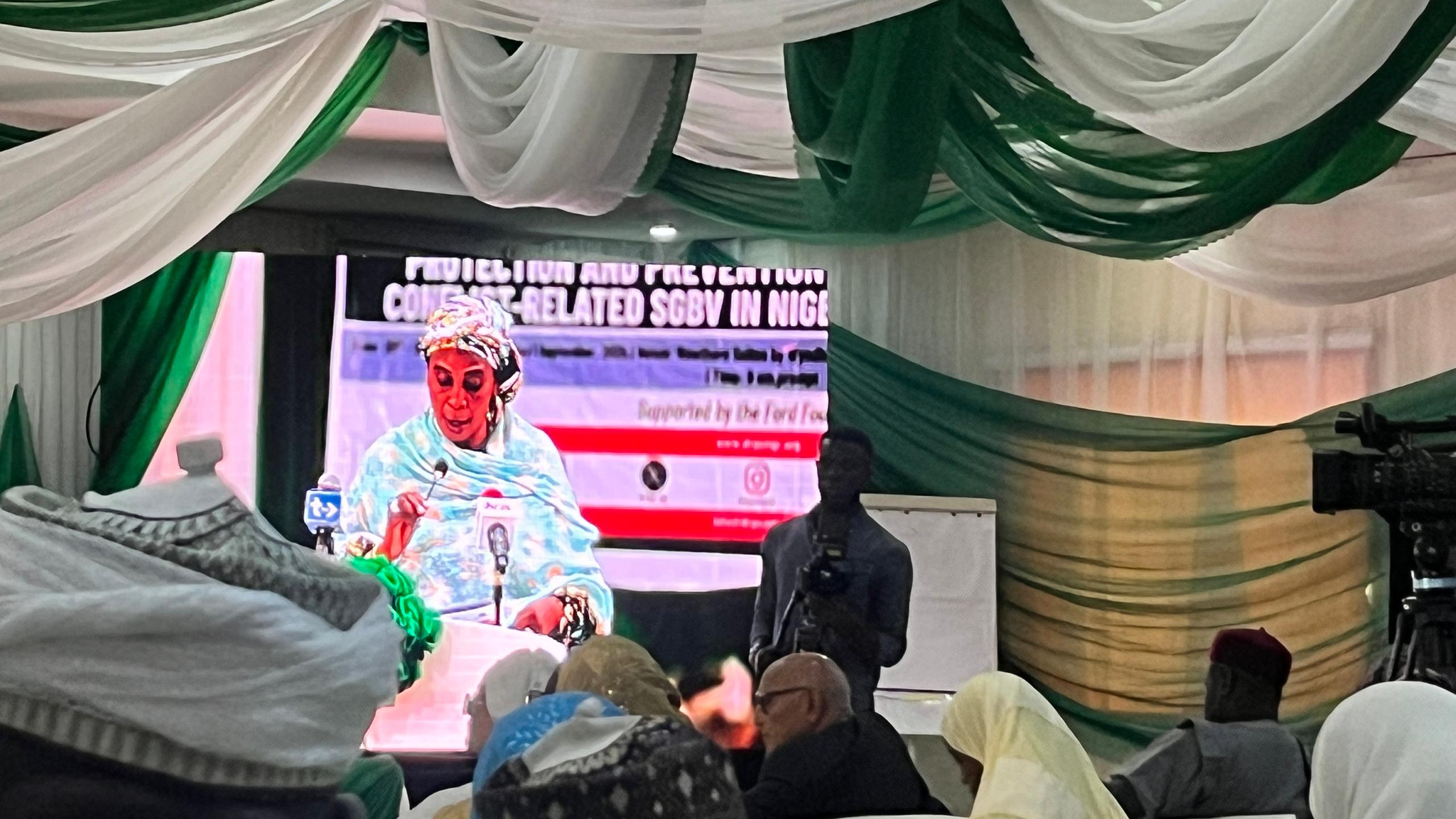
A key religious perspective was articulated by Imam Usman, who reiterated that Islam prohibits any form of physical or emotional abuse against wives. While clarifying contested interpretations about permissible discipline, he emphasized that the Prophet Muhammad (PBUH) never struck his wives, underscoring that true adherence to Islamic example leaves no room for GBV. He highlighted the importance of mediation and family support in resolving conflicts and condemned all forms of GBV.
The event’s interim featured group activities, presentations, and break sessions—including the screening of awareness videos—before resuming for academic and religious presentations on GBV’s different forms, impacts, and root causes. Participants engaged in dynamic Q&A sessions, with real-life experiences shared from within the FOMWAN community. One particularly striking testimony involved a 13-year-old girl forced into early marriage, resulting in severe health complications—a heartbreaking illustration of the long-term trauma GBV can cause in young lives.
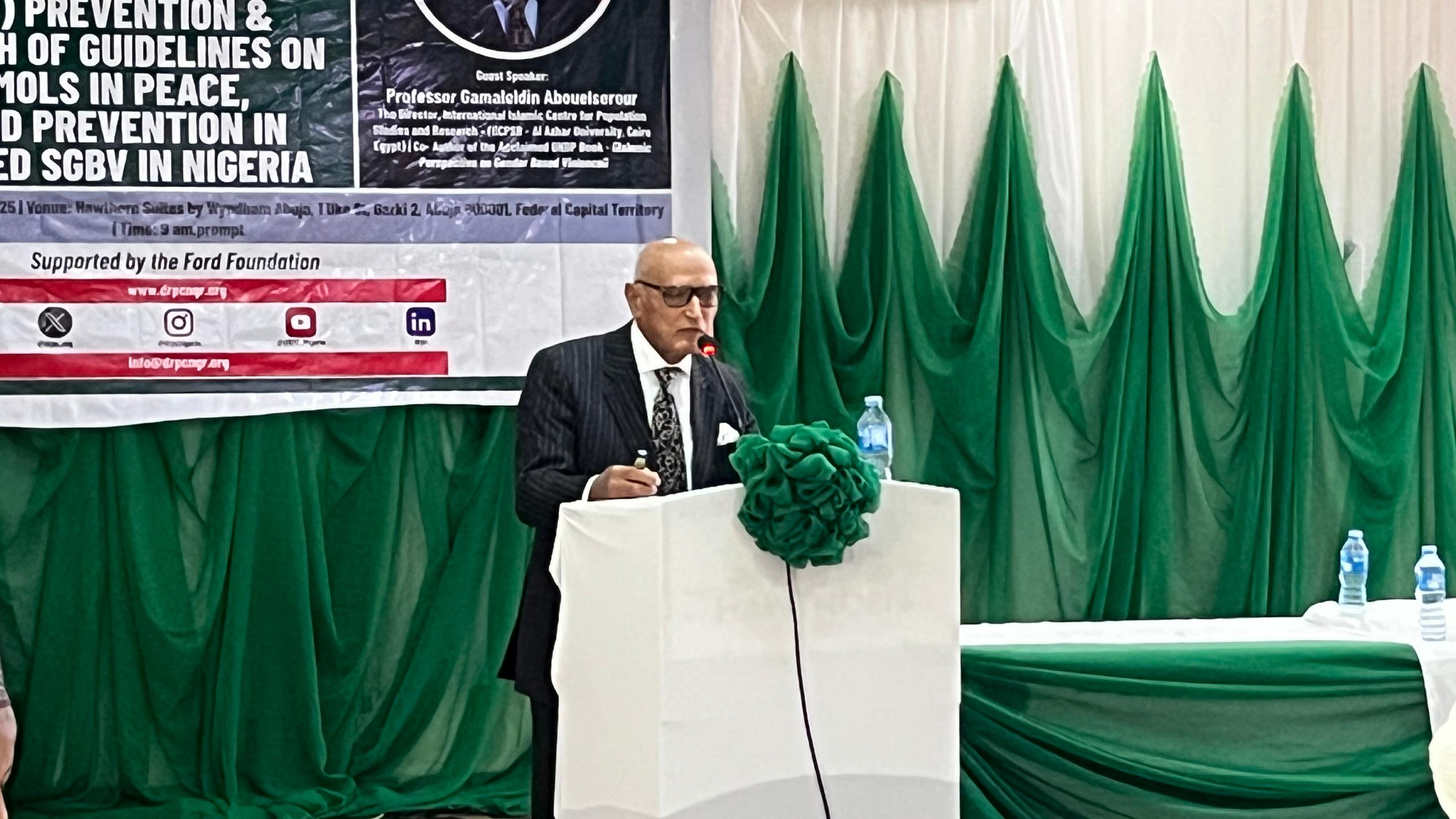
Professor Abdulserour, in his session, identified five main forms of GBV against women: physical assault, sexual violence and harassment, social and cultural violence, psychological abuse, and political violence. He traced these to intergenerational attitudes, customs that discourage women’s assertiveness, and economic hardships. He argued that from an Islamic point of view, gender equity means equitable opportunities, rights, and responsibilities allocated according to ability and competence as dictated by Allah.
During subsequent discussions, local leaders stressed the importance of education, with Umar Jabbi—a traditional ruler from Sokoto—advocating that every girl should at least complete secondary education before marriage. Others noted that while men can also experience gender-based violence, it often manifests in emotional abuse—an angle sometimes overlooked in mainstream debates.
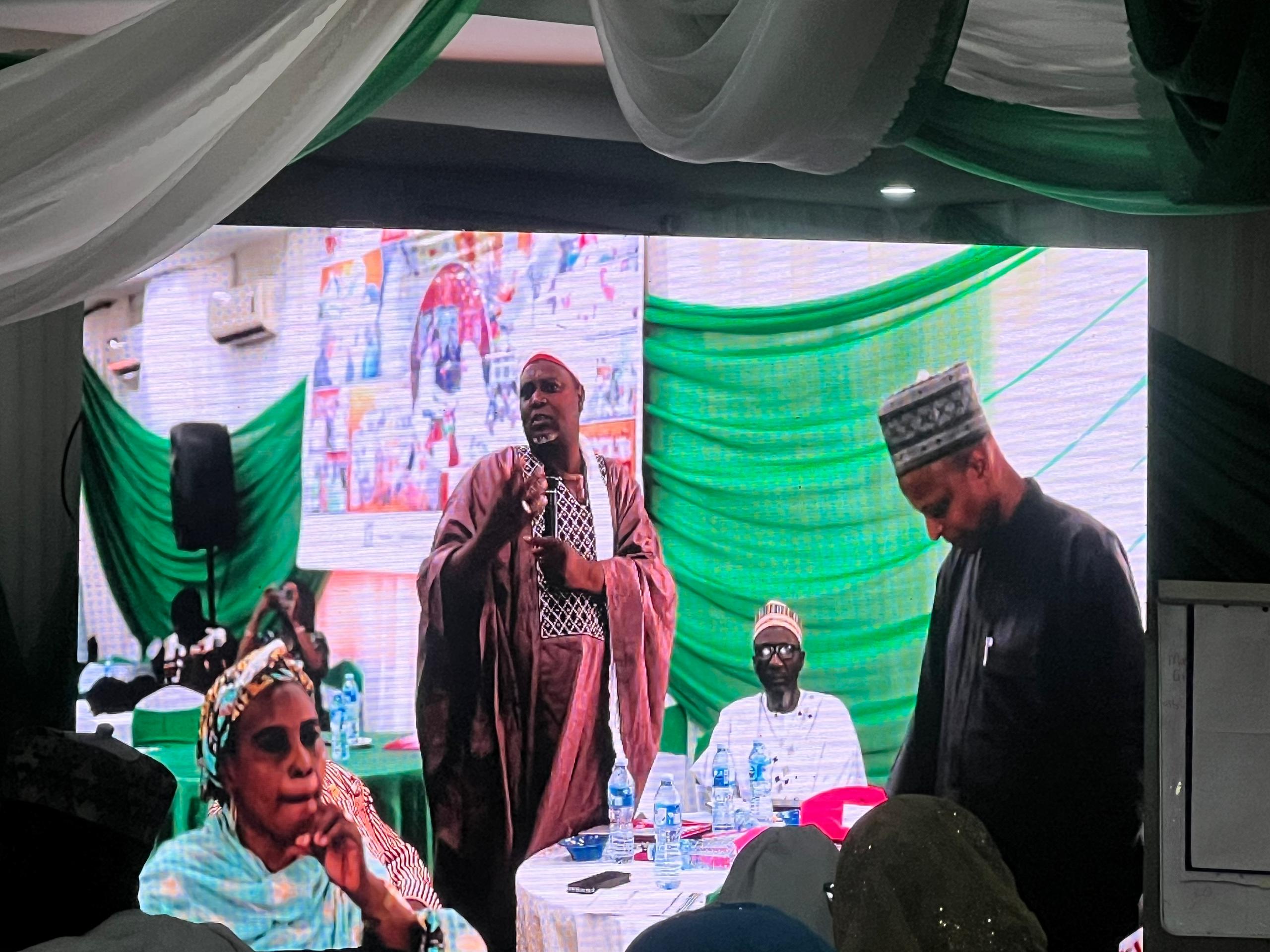
Counterpoints emerged during panel exchanges: Imam Ilyas Usman cautioned against mandating marriage by age, suggesting the issue is context-specific. Challenges in reporting GBV, underreporting in rural communities, and the need for direct interventions were recurring themes.
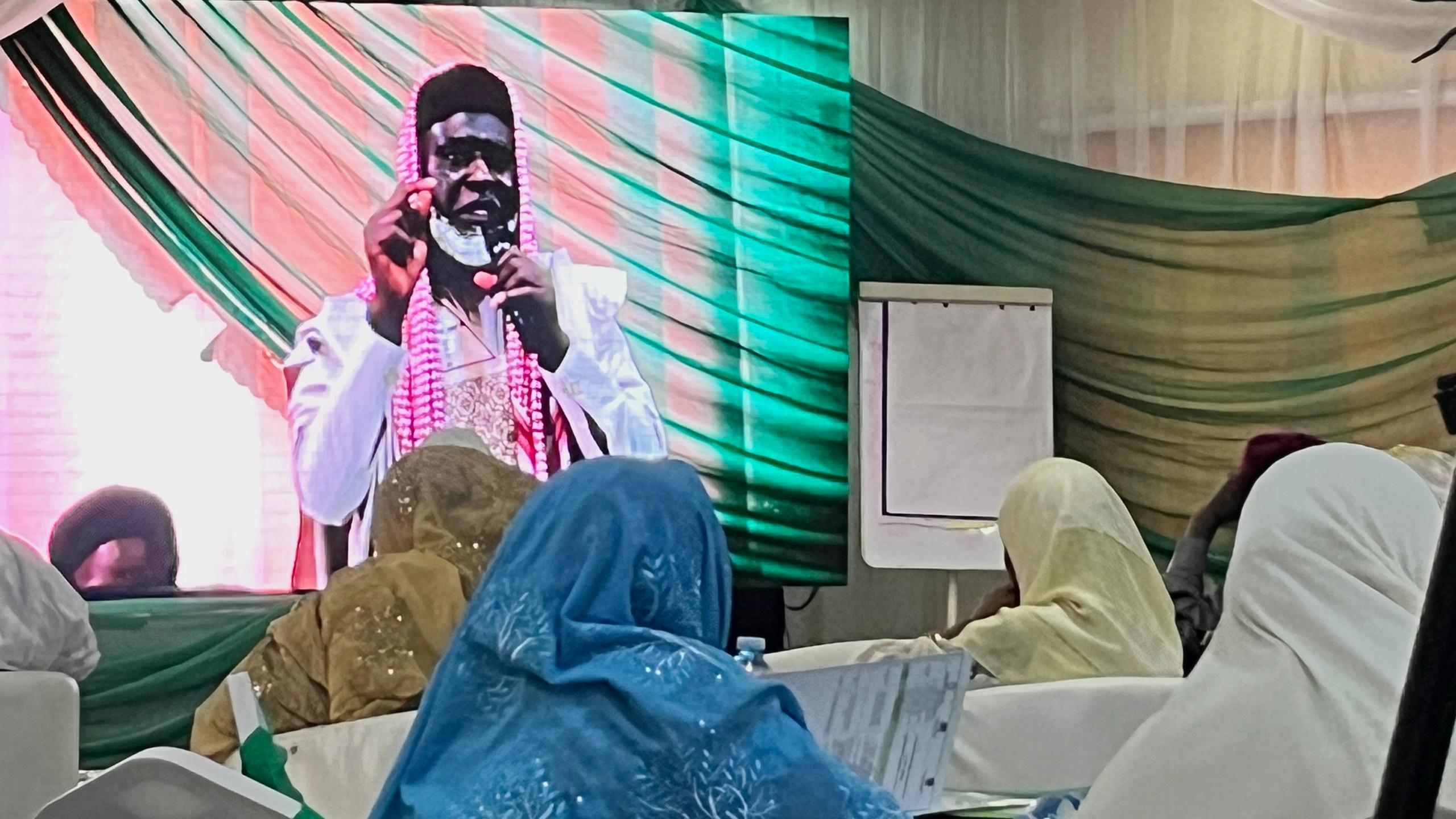
A major highlight was the official launch of the three manuals, led by FOMWAN’s National Public Relations Officer Hauwa Abdullahi, CICID Director Taufiq Abubakar, and Professor Aboulserour. Each attendee received copies, with panel discussions planned for deeper exploration of their content during the programme’s second day.
The event’s final panel examined state-level innovations and responses to GBV. State commissioners from Jigawa, Kaduna, Kano, and Niger discussed policies such as the Violence Against Persons Prohibition (VAPP) Law, Child Welfare and Protection Law, cash transfer and economic empowerment programmes, and the creation of shelters and family courts. These collaborative actions, as highlighted by the commissioners, indicate a steady but challenging progression towards more effective survivor support and GBV prevention in Northern Nigeria. They called for additional collaboration with NGOs, stronger policies to support divorced women, and improved mechanisms for early incident reporting—especially in rural communities.
Notably, Jigawa State reported that over 143,000 women have received free access to medical care addressing GBV, and that education initiatives for girls stretch from primary through tertiary levels. Kano State’s focus remains on awareness-raising and survivor support, while Niger State continues its advocacy initiatives in markets, schools, and among traditional institutions. Kaduna State shared their model of interfaith engagement, working closely with religious groups such as Jama’atu Nasril Islam, FOMWAN, and CAN to spread anti-GBV messages and support women’s empowerment.
A final panel session explored the practical impact of religious leaders’ advocacy. Sani Isah from the Interfaith Mediation Centre described a network of Islamic and Christian leaders coming together to adapt GBV policies for wider local acceptance. In Sokoto, GBV case reporting has reportedly increased due to enhanced surveillance teams and a state-level coordinating committee. The state is also in the final legislative stages for a family court system specifically for GBV cases. Contributions from Katsina’s Abdul-Azeez Mashi revealed that mass media, especially radio, is leveraged to educate people on the risks and realities of GBV, and voices like Binta Abdullahi noted that community insecurity exacerbates the incidence and impact of GBV, particularly in the North-West.
As the event drew to a close—with prayers and departures—participants left with renewed commitment to challenging GBV at community and policy levels. The event underscored the unique power of religious and traditional leaders in shaping public attitudes and advancing meaningful change across Nigeria and West Africa. With the launch of culturally relevant resources and increased interfaith collaboration, the hope is to inspire not just dialogue, but concrete action that protects the most vulnerable and empowers all community members to reject violence in every form.
How can Nigerians and West Africans better engage religious and community leaders in addressing deep-rooted social issues like gender-based violence? Share your thoughts in the comments and join the discussion—change starts with your voice!
For general support, reach out at support@nowahalazone.com.
Stay in the loop: follow us for more updates on Facebook, X (Twitter), and Instagram. Let’s build safer, stronger communities together!

